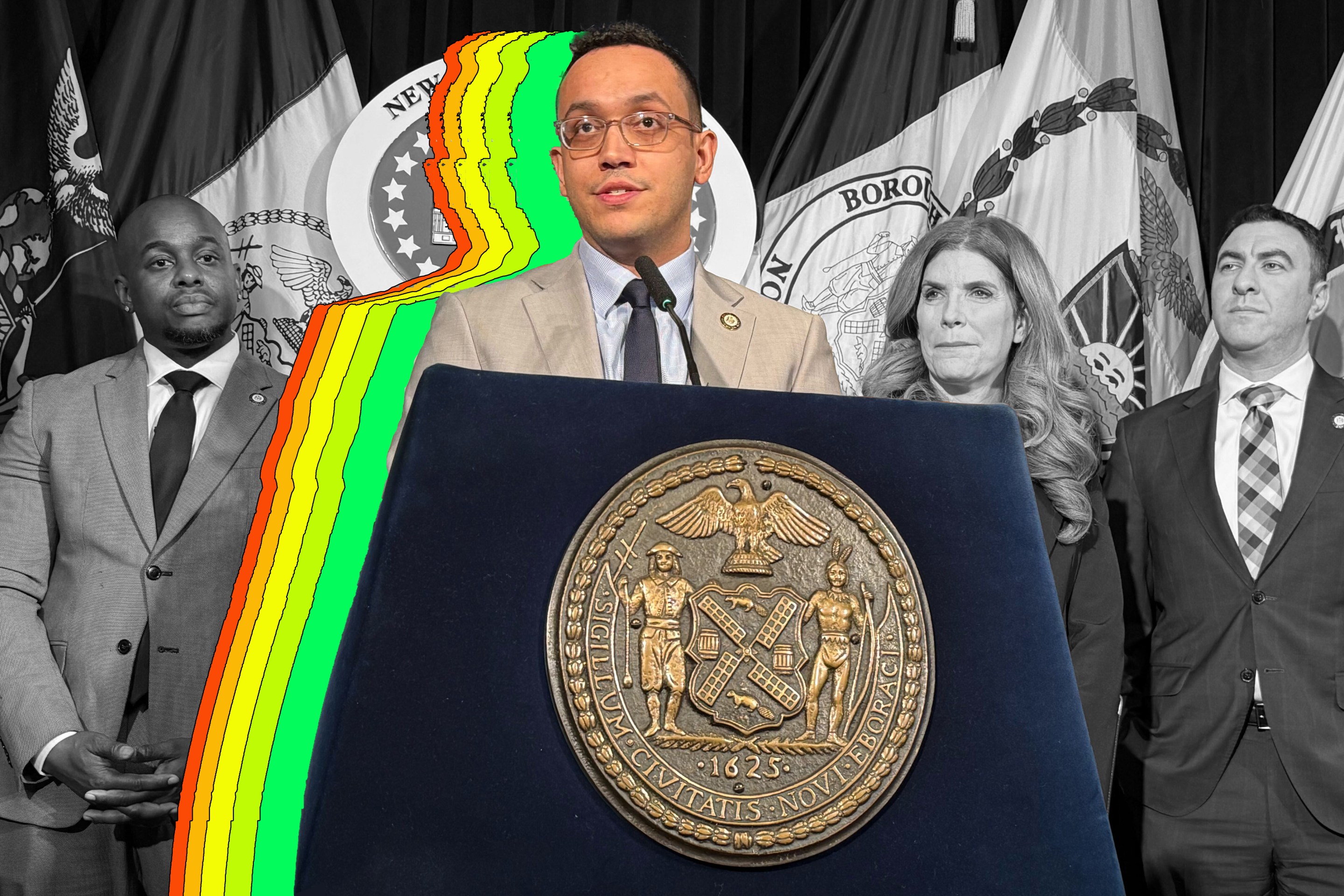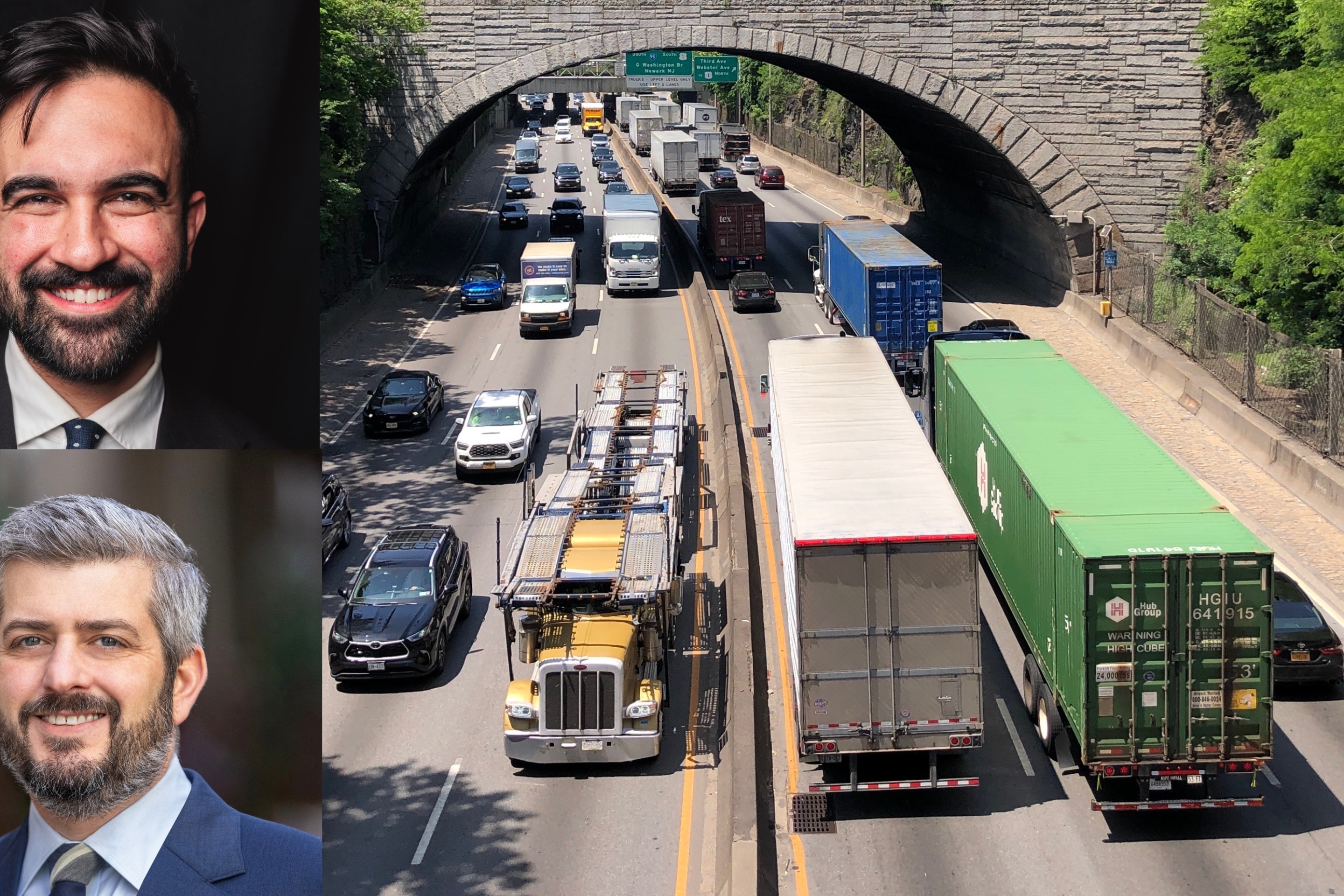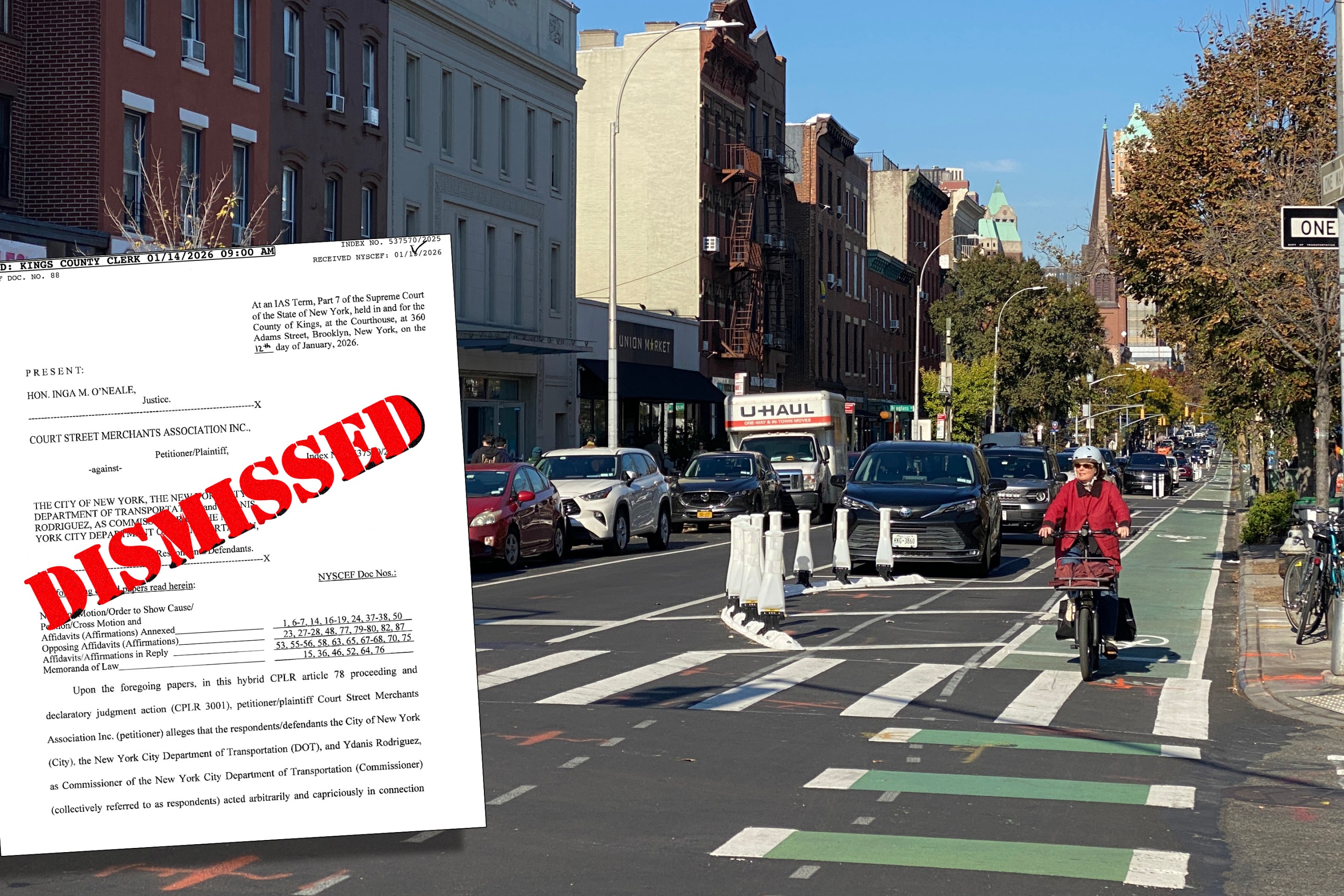Police Commissioner Bill Bratton told the City Council today that NYC traffic fatalities have continued to drop in 2015, but not every council member is pleased with the city's recent steps to deter dangerous driving.

In testimony to the public safety committee, Bratton said traffic deaths were down 43 percent as of mid-February, though he didn't give exact figures or dates. NYPD collision data from January show overall fatalities were down 38 percent compared to January 2014, and pedestrian and cyclist deaths decreased by 46 percent compared to last year. Injuries to pedestrians and cyclists also declined relative to 2014. NYPD didn't release January data until March, so February data likely won't be available to the public for a few weeks.
This is too small a sample to draw hard conclusions. But it could be an indication that NYC's speed camera program, coupled with NYPD enforcement of speeding and failure to yield -- which is inconsistent among precincts but trending upward overall -- is paying dividends.
Chief of Transportation Thomas Chan said enforcement of the Right of Way Law, which made it a misdemeanor for drivers to harm someone with the right of way, continues to be limited to the Collision Investigation Squad, as the department is still developing a protocol for precinct officers to apply it. Council Member Rory Lancman, who in February asked Chan how police determine whether a driver who failed to yield also failed to exercise due care, again questioned whether NYPD is applying the law correctly.
"I get it that you’re formulating a procedure for the rest of the force, but you're arresting people now," Lancman said. "And so those arrests need to be done in conformance with the law, which requires not merely failure to yield, but also the failure to exercise due care. So for the group of officers, the CIS team, that are authorizing those arrests, what standards are they applying to whether or not somebody not just failed to yield, but also failed to exercise due care?”
Chan laid out the procedure. “What happens is that the CIS officers and investigators will conduct a thorough investigation, and taking a look at the totality of the evidence, whether it be video tape, an interview with witnesses, the right of way of the pedestrian who was crossing at the time, and doing a full investigation and taking all those circumstances into consideration," he said. "And if we do find that the individual failed to use due care when they struck the pedestrian in the crosswalk, then they will make the arrest for that particular violation."
Chan went on to explain that investigations can take longer if certain evidence, like video, isn't immediately available. "As they develop probable cause that the person failed to yield, and did not exercise due care, that’s when they will make the arrest," Chan said. "But again it’s on the totality, taking a look at all the evidence and all the circumstances, and a thorough investigation, that’s when they will make an arrest."
At least five pedestrians have been killed by drivers since January 2014 in Lancman's district, and he voted for the Right of Way Law. But it doesn't seem like he's about to stop backpedaling on it. "Well just get me an answer to that letter and we can carry on the conversation," Lancman told Chan.
Lancman and several other council members, including Corey Johnson and committee chair Vanessa Gibson, complained that their districts don't have enough crossing guards. Department officials said eliminating a fee for background checks has resulted in fewer vacancies than usual, but said no pay raises are forthcoming.





